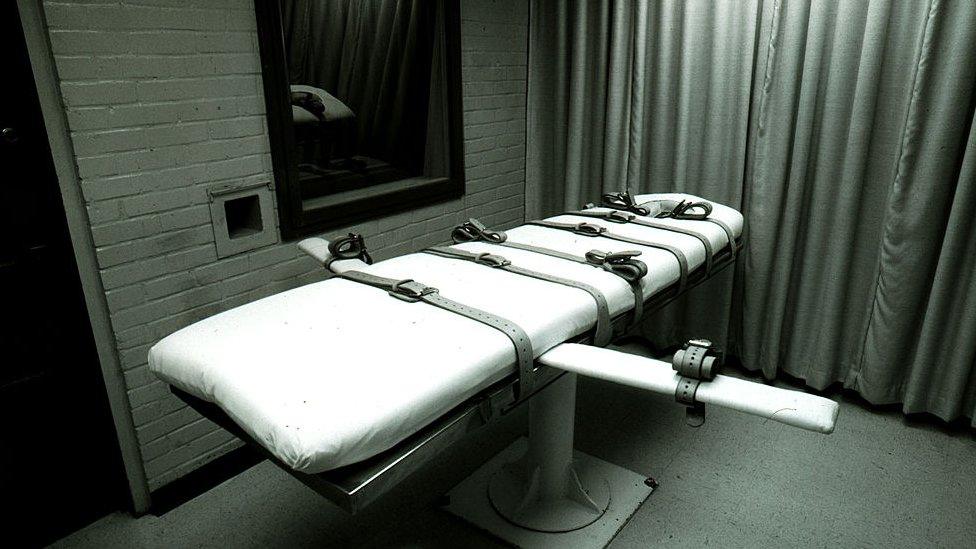Death penalty: Kenneth Eugene Smith says wait for untested execution like 'torture'
- Published
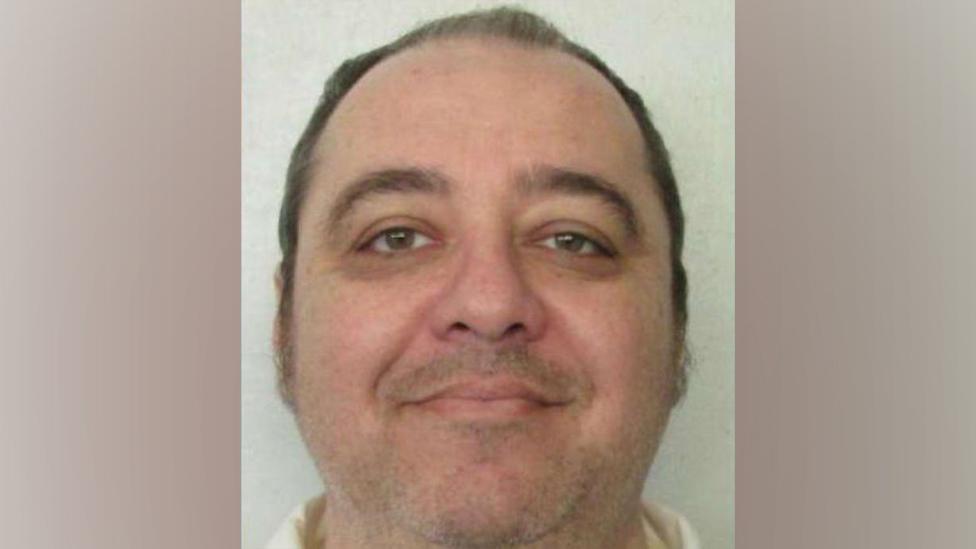
Kenneth Eugene Smith faces execution over a 1988 murder
Kenneth Eugene Smith is set to become the first person in the US to be executed by nitrogen gas. As he spends his final days on death row, he says he is haunted by thoughts of the untested procedure.
Warning: This article contains graphic descriptions of methods of execution, which could upset some readers.

The first time Kenneth Eugene Smith was about to die, Alabama's executioners had several hours to kill him.
They bound the condemned man to a gurney in the so-called "death chamber" of Holman Correctional Facility and tried to inject him with a lethal blend of chemicals.
But they failed.
Unable to raise a vein, which Smith's lawyers said left him with numerous incisions, they abandoned the attempt as the clock hit midnight and the state's death warrant expired.
That was November 2022. Now, Alabama will try to kill him again.
This time, the US state has authorised a plan to suffocate Smith by strapping an air-tight mask over his face and forcing him to inhale pure nitrogen, an inert gas that would starve his body of oxygen.
The UN's High Commissioner for Human Rights last week said the never-before-used method could amount to torture or other cruel, inhuman or degrading treatment, and called for a halt.
A final appeal ruling is still outstanding after a federal court rejected his lawyers' request for an injunction. Smith is due to be executed on Thursday.
Smith was one of two men convicted in 1989 of murdering a preacher's wife, Elizabeth Sennett, who was stabbed and beaten to death in a $1,000 (£786) killing-for-hire. He is one of the only men in modern America to be taken twice for execution, and the first to face nitrogen gassing.
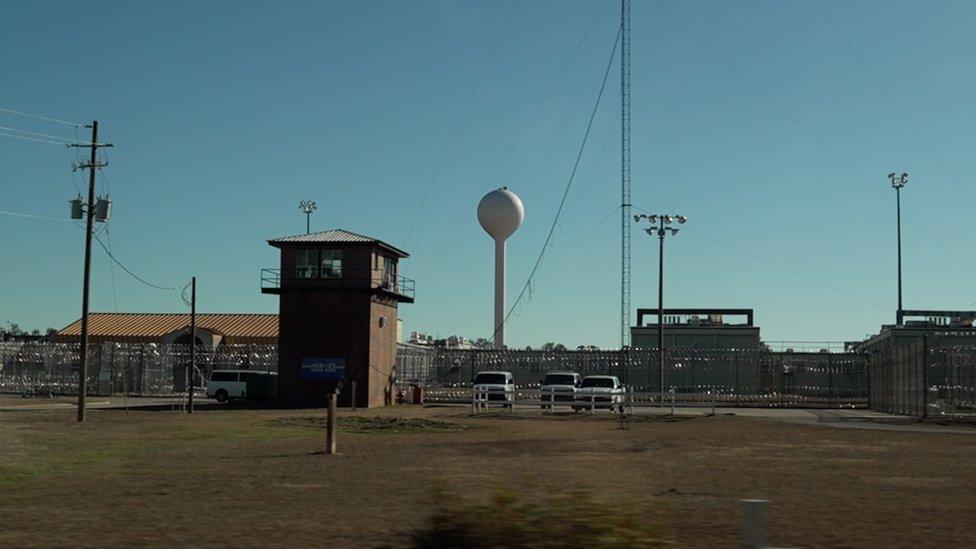
Eugene Kenneth Smith has spent decades on death row at Holman Correctional Facility
"My body is simply breaking down, I keep losing weight," Smith told the BBC in a written answer to questions we put to him via an intermediary.
Face-to-face meetings between journalists and death row prisoners are prohibited in Alabama. We reached him by telephone late last week, but he asked not to proceed with an interview as he said he had become seriously unwell.
"I'm nauseous all the time. Panic attacks hit regularly... This is just a small part of what I've been dealing with daily. Torture, basically," he wrote. He called for Alabama to "stop [the execution]. Before it's too late".
The state maintains that nitrogen gas execution will cause unconsciousness quickly but it has not presented any plausible evidence.
Medical experts and campaigners have warned about the risk of catastrophic mishaps, ranging from violent convulsions to survival in a vegetative state, and even the possibility of gas leaking from the mask and killing others in the room, including Mr Smith's religious advocate.
"I'm certain that Kenny's not afraid to die, he's made that very clear. But I think he's afraid that he will be even further tortured in the process," says his spiritual advisor Rev Dr Jeff Hood. He has signed a legal waiver from the state spelling out the dangers of a nitrogen leak.
"I'll be a number of feet from him, and I have been warned repeatedly by various medical experts that I'm risking my life to do this. If there's any sort of leak in the hose, if there's any sort of leak from the mask, from the seal around his face, it could certainly lead to nitrogen leaking into the room," Dr Hood told the BBC.
That amounts to an intolerable level of danger, says one expert who co-authored an investigation sent to the UN.
Nitrogen makes up 78% of the air we breathe, passing in and out of the body harmlessly with every breath. But breathing pure nitrogen slowly deprives the body's cells and organs of oxygen, causing them to break down and eventually leading to death, said Dr Joel Zivot, an associate professor in anaesthesiology at Emory University's School of Medicine.
He warns of unintended risks from the presence of pure nitrogen changing the oxygen-to-nitrogen ratio in the execution chamber, especially as Smith could hold his breath or move his head against the mask, or the equipment could leak.
"Some of it will be exhaled [by Smith] along with carbon dioxide and some of it may leak out of the mask. And I think that that presents a real and material danger to this execution," Dr Zivot said.
The Alabama Department of Corrections appears to have attempted to address this concern in the waiver form it sent to Dr Hood.
It says there are "wall-mounted oxygen sensors" in the execution chamber. But it also warns the spiritual advisor of the generic risks posed when nitrogen rapidly displaces oxygen causing "loss of consciousness without warning". It urges him to stay at least three feet away from Smith at all times, warning of a "small area risk" of "nitrogen outflow".
Dr Zivot believes the risk assessment amounts to a form of pseudo science, since execution by nitrogen has never been attempted, and it is not clear how long it will take Smith to die.
"There is no science. This is just really pulling anecdotes and imagining and trying to think of what may occur based upon, again, other pieces of information that are really not at all a scientific inquiry."
Dr Zivot also accused the Alabama authorities of a "terrible" track record of "cruel" executions.
"I guess I have to conclude that Kenneth Smith must be the worst man in America, because Alabama is so hell bent on killing him, that they're willing to kill other people to kill him," Dr Zivot told the BBC.
"Imagine the firing squad where all the witnesses are lined up next to the person you're about to execute, and you get them all to sign waivers, because it turns out that the guys you've got are not very good shots, and so it's possible that they might shoot you too. So these are some of the things I can imagine that could happen with nitrogen gas," he said.
"What we do know about nitrogen gas is that in an early study with healthy volunteers, almost all of them at about 15 into 20 seconds of breathing had a generalised seizure," he said.
In such a scenario, Smith could lose consciousness or suffer a series of violent spasms.
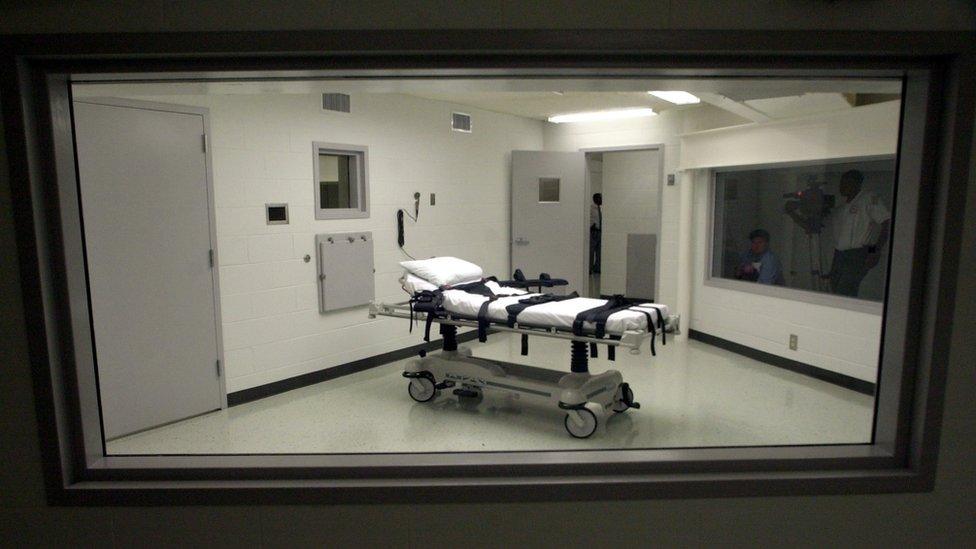
Smith will be put to death in a small chamber at Holman Correctional Facility, accompanied by his spiritual adviser
Alabama has one of the highest per capita execution rates in the US and has 165 people currently on death row., external
Since 2018, the state has been responsible for three botched attempts at lethal injection in which the condemned inmates survived. The failures led to an internal review which largely placed blame on the prisoners themselves.
It said their lawyers had tried to save their lives by "running out the clock" with eleventh hour court appeals for stays of execution. The review said this caused "unnecessary deadline pressure" for their executioners., external
This time, the team will get a longer "time frame," rather than a midnight deadline, to execute Smith.
Alabama Governor Kay Ivey, who has the power to halt judicial killings, declined to comment on the expert warnings and the allegations against the state. The Attorney General's office called the UN's concerns "as unfounded as Smith's".
It said in a statement: "The trial court examined Smith's challenge, heard from multiple medical experts, and determined that Smith's concerns about nitrogen hypoxia were 'speculative' and 'theoretical'."
It added: "We intend to proceed with his execution on January 25th."
Republican state lawmaker Reed Ingram, who voted in favour of authorising execution by nitrogen gas, rejected the UN's criticism.
"I don't know about degrading, I don't know about inhumane, I think we're improving. I think the process may be better than what he did to the victim," he told the BBC.
"Our governor is a Christian. She's debated this whole thing and she thinks it's measured. I'm sure it's heavy on her mind, but it's the law," he said.
The BBC approached the family of Elizabeth Sennett, who said they would not make any comment until Thursday.
In 1996 a jury recommended life in prison without parole for Smith, but the judge overruled them and sentenced him to death. At his trial he admitted to being present when the victim was killed, but says he did not take part in the attack.
Related topics
- Published21 December 2023
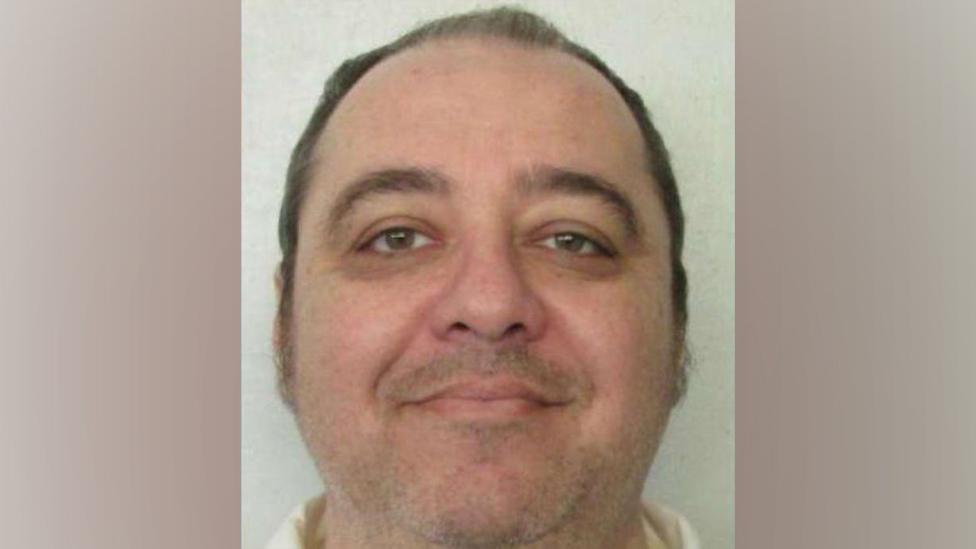
- Published25 January 2024
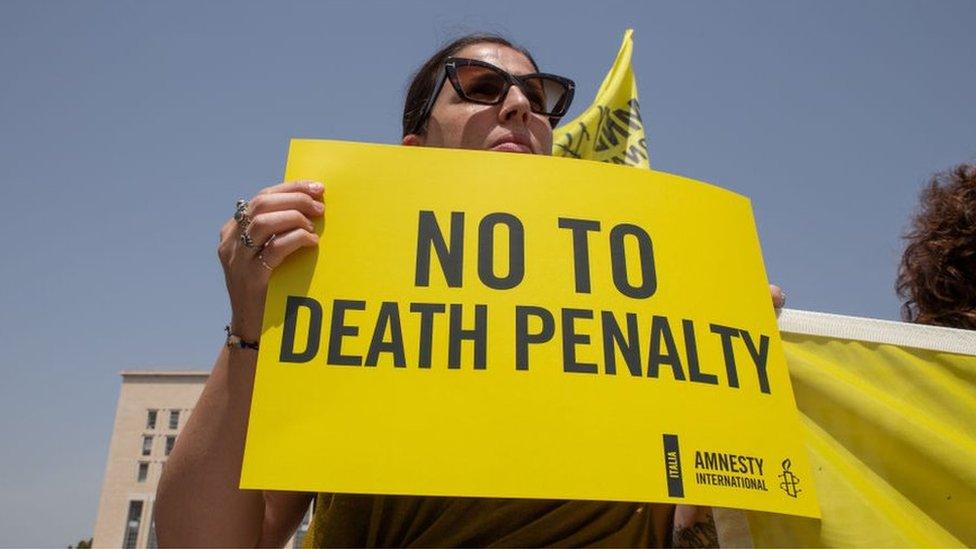
- Published16 December 2022
